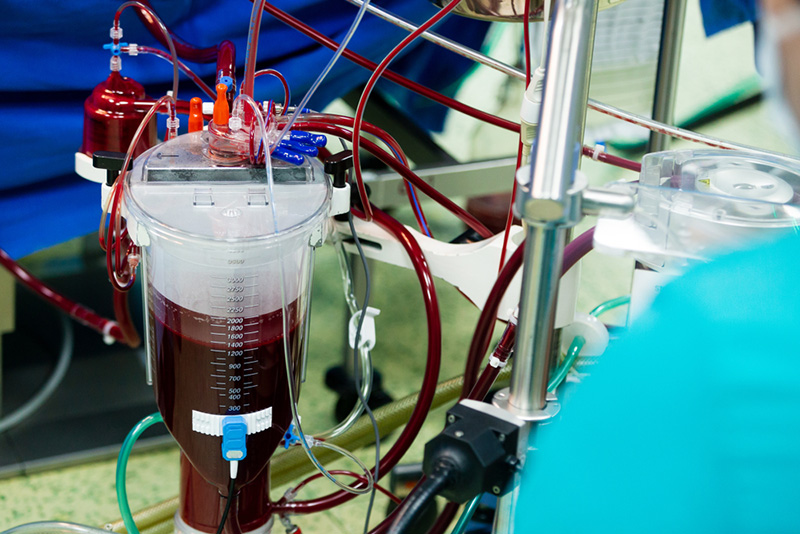Volume 32, Nº 6, November and December 2019
DOI: https://doi.org/10.36660/ijcs.20190187
EDITORIAL
Blood Transfusion in Cardiac Surgery: Less is More?
Fernanda Azevedo-Silva

Blood transfusion is one of the most common medical procedures,1 and a major part of these are performed during cardiac surgeries. The incidence of perioperative transfusion in cardiac surgeries varies from 40 to 90%,2 according to the complexity of the procedure and the protocols adopted in each institution.
The study by Tagliari et al.,3 published in the International Journal of Cardiovascular Sciences, analyzed the use of blood transfusion and postoperative outcomes within 30 days in patients undergoing cardiac surgery in a Brazilian tertiary hospital between 2015 and 2017. In this prospective cohort, subjects were divided into those who received transfusion and those who did not. Patients most likely to receive blood transfusion were patients with previous cardiac surgery, longer time of cardiopulmonary bypass, chronic kidney disease recent use of oral anticoagulants and antiplatelet agents, left ventricular ejection fraction less than or equal to 30%, lower preoperative hemoglobina levels, and changes in coagulation, urea and creatinine tests. Patients in the transfused group had more severe disease than those in the non-transfused group, with more patients reoperated and taking medications that could interfere with blood coagulation, both factors associated with increased bleeding and need for transfusion. However, blood transfusion was an independent risk factor for mortality in multivariate analysis when adjusted for major confounders. Transfused patients had higher mortality, higher rates of bronchopneumonia and acute kidney injury, longer hospital stay and mechanical ventilation. The authors concluded that blood transfusion should be reconsidered in cardiac surgery, because even transfusion of a blood component unit was associated with a worse postoperative outcome. Since transfusion is one of the few modifiable factors that may worsen the prognosis of surgery, strategies to prevent transfusion should be encouraged. The main criticism about this study is that, as an observational one, had no possibility of randomization, with high chance of bias, which made it difficult to establish a causal relationship.
Keywords: Blood Transfusion/methods; Thoracic Surgery/ complications; Risk Factors; Mortality; Perioperative Care.











